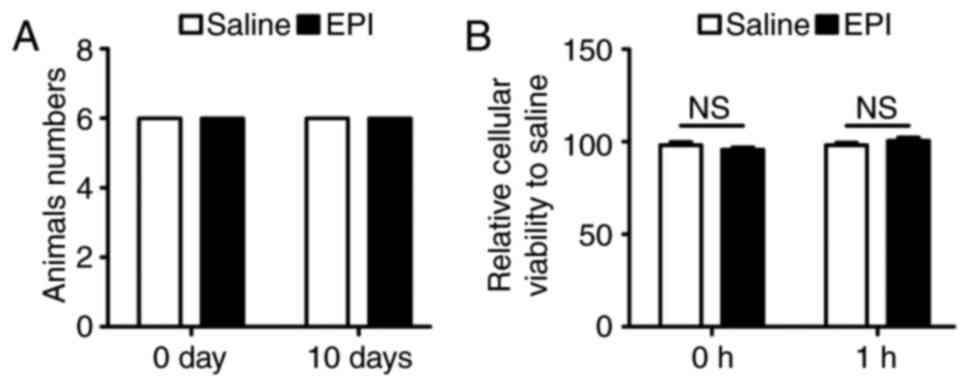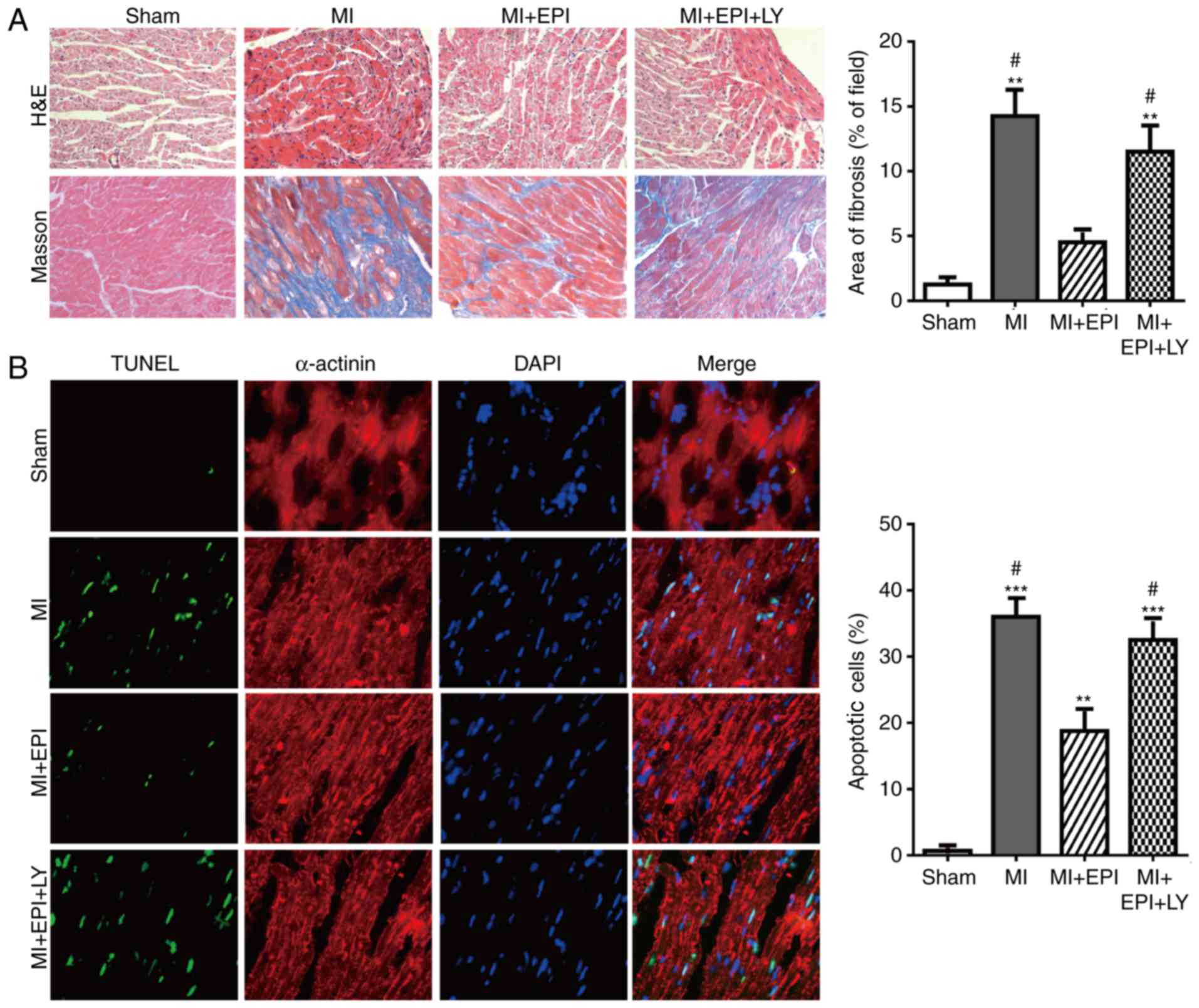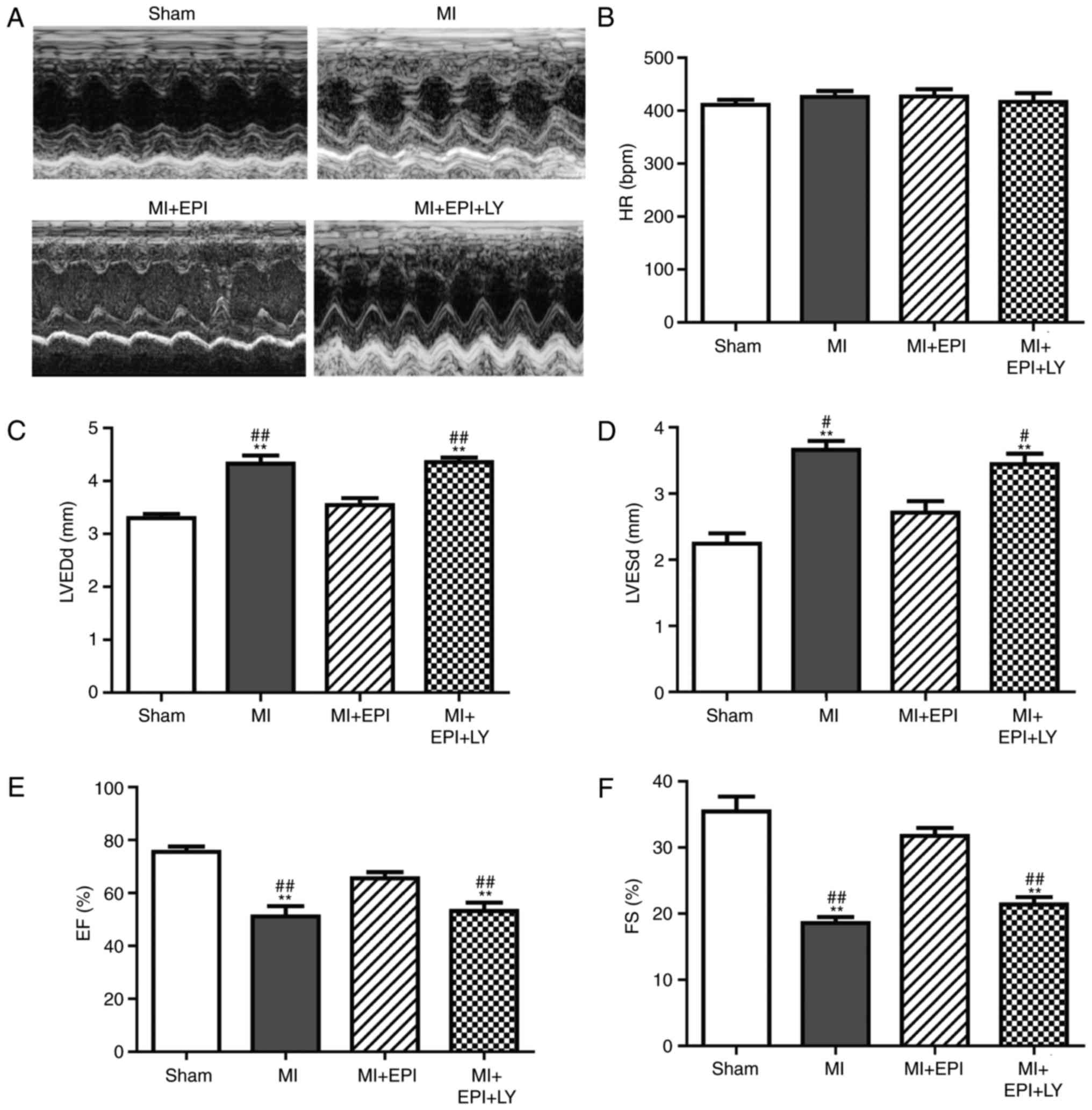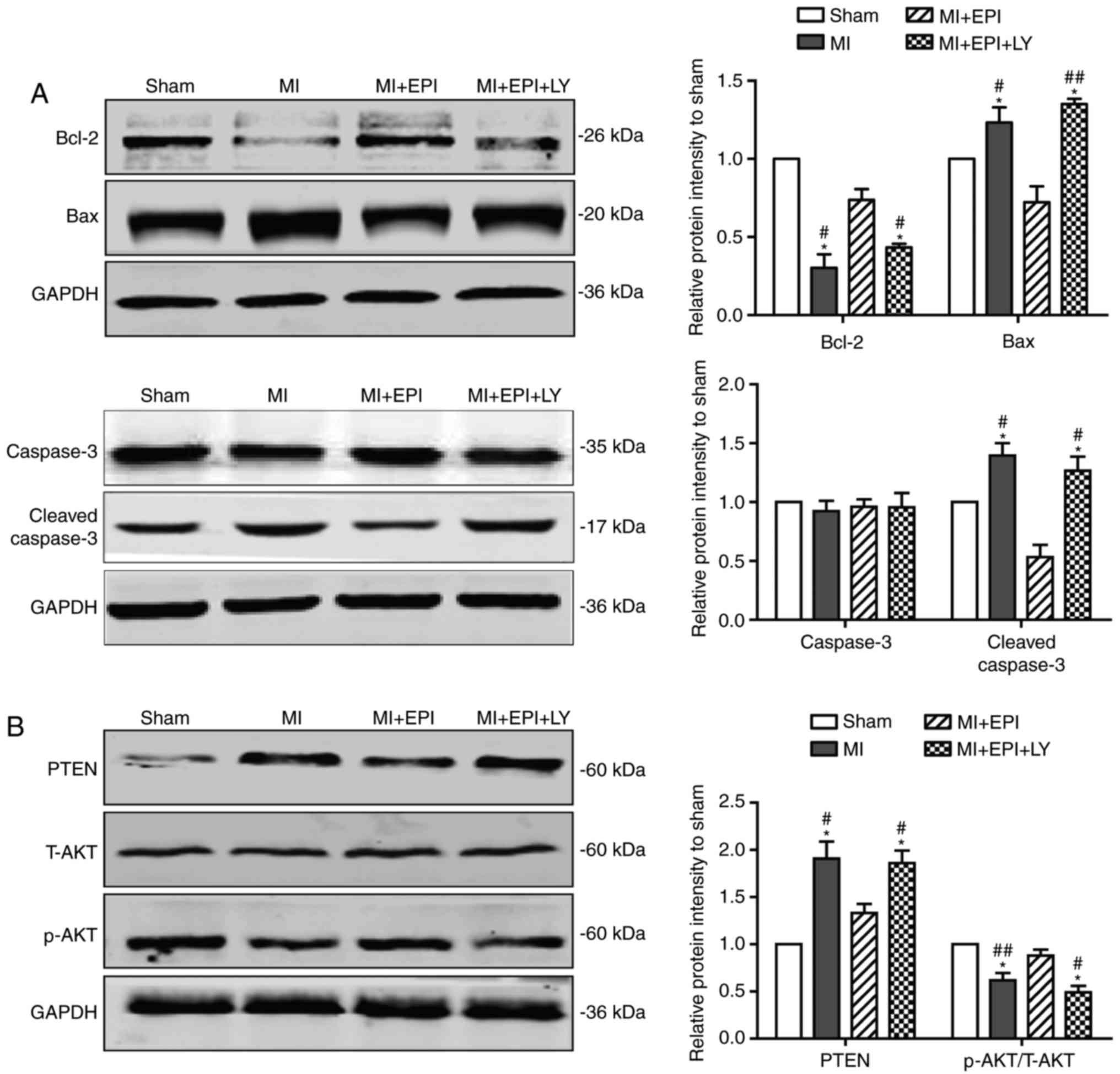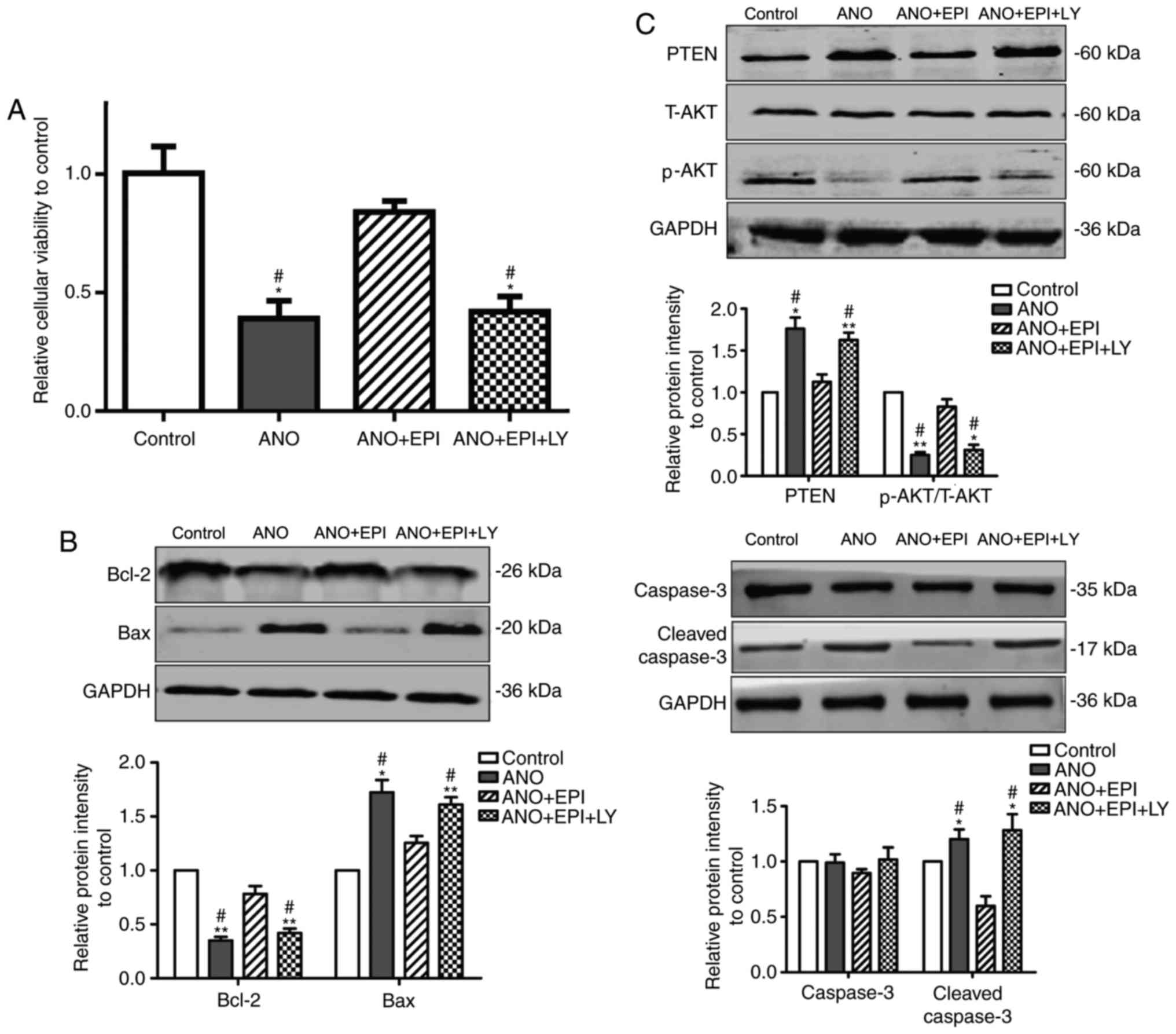|
1
|
Steg PG, Greenlaw N, Tendera M, Tardif JC,
Ferrari R, Al-Zaibag M, Dorian P, Hu D, Shalnova S, Sokn FJ, et al:
Prevalence of anginal symptoms and myocardial ischemia and their
effect on clinical outcomes in outpatients with stable coronary
artery disease: Data from the international observational CLARIFY
registry. JAMA Intern Med. 174:1651–1659. 2014. View Article : Google Scholar : PubMed/NCBI
|
|
2
|
Cheng D, Zhu C, Cao J and Jiang W: The
protective effects of polyphenols from jujube peel (Ziziphus
Jujube Mill) on isoproterenol-induced myocardial ischemia and
aluminum-induced oxidative damage in rats. Food Chem Toxicol.
50:1302–1308. 2012. View Article : Google Scholar : PubMed/NCBI
|
|
3
|
Misumida N, Kobayashi A, Saeed M, Fox JT
and Kanei Y: Electrocardiographic left ventricular hypertrophy as a
predictor for nonsignificant coronary artery disease in patients
with non-ST-segment elevation myocardial infarction. Angiology.
67:27–33. 2016. View Article : Google Scholar : PubMed/NCBI
|
|
4
|
Sung HK, Chan YK, Han M, Jahng JWS, Song
E, Danielson E, Berger T, Mak TW and Sweeney G: Lipocalin-2 (NGAL)
attenuates autophagy to exacerbate cardiac apoptosis induced by
myocardial ischemia. J Cell Physiol. 232:2125–2134. 2017.
View Article : Google Scholar : PubMed/NCBI
|
|
5
|
Panza JA, Holly TA, Asch FM, She L,
Pellikka PA, Velazquez EJ, Lee KL, Borges-Neto S, Farsky PS, Jones
RH, et al: Inducible myocardial ischemia and outcomes in patients
with coronary artery disease and left ventricular dysfunction. J Am
Coll Cardiol. 61:1860–1870. 2013. View Article : Google Scholar : PubMed/NCBI
|
|
6
|
Patel RD and Saver JL: Evolution of
reperfusion therapies for acute brain and acute myocardial
ischemia: A systematic, comparative analysis. Stroke. 44:94–98.
2013. View Article : Google Scholar : PubMed/NCBI
|
|
7
|
Shay J, Elbaz HA, Lee I, Zielske SP, Malek
MH and Huttemann M: Molecular mechanisms and therapeutic effects of
(−)-epicatechin and other polyphenols in cancer, inflammation,
diabetes, and neurodegeneration. Oxidat Med Cell Longev.
2015:1812602015. View Article : Google Scholar
|
|
8
|
Quine SD and Raghu PS: Effects of
(−)-epicatechin, a flavonoid on lipid peroxidation and antioxidants
in streptozotocin-induced diabetic liver, kidney and heart.
Pharmacol Rep. 57:610–615. 2005.PubMed/NCBI
|
|
9
|
Yamazaki KG, Romero-Perez D,
Barraza-Hidalgo M, Cruz M, Rivas M, Cortez-Gomez B, Ceballos G and
Villarreal F: Short- and long-term effects of (−)-epicatechin on
myocardial ischemia-reperfusion injury. Am J Physiol Heart Circulat
Physiol. 295:H761–H767. 2008. View Article : Google Scholar
|
|
10
|
Yamazaki KG, Taub PR, Barraza-Hidalgo M,
Rivas MM, Zambon AC, Ceballos G and Villarreal FJ: Effects of
(−)-epicatechin on myocardial infarct size and left ventricular
remodeling after permanent coronary occlusion. J Am Coll Cardiol.
55:2869–2876. 2010. View Article : Google Scholar : PubMed/NCBI
|
|
11
|
Sheng R, Gu ZL and Xie ML:
Epigallocatechin gallate, the major component of polyphenols in
green tea, inhibits telomere attrition mediated cardiomyocyte
apoptosis in cardiac hypertrophy. Int J Cardiol. 162:199–209. 2013.
View Article : Google Scholar : PubMed/NCBI
|
|
12
|
Suzuki J, Ogawa M, Maejima Y, Isobe K,
Tanaka H, Sagesaka YM and Isobe M: Tea catechins attenuate chronic
ventricular remodeling after myocardial ischemia in rats. J Mol
Cell Cardiol. 42:432–440. 2007. View Article : Google Scholar : PubMed/NCBI
|
|
13
|
Ke Z, Wang G, Yang L, Qiu H, Wu H, Du M,
Chen J, Song J, Jia X and Feng L: Crude terpene glycoside component
from Radix paeoniae rubra protects against isoproterenol-induced
myocardial ischemic injury via activation of the PI3K/AKT/mTOR
signaling pathway. J Ethnopharmacol. 206:160–169. 2017. View Article : Google Scholar : PubMed/NCBI
|
|
14
|
Cui G, Shan L, Hung M, Lei S, Choi I,
Zhang Z, Yu P, Hoi P, Wang Y and Lee SM: A novel Danshensu
derivative confers cardioprotection via PI3K/Akt and Nrf2 pathways.
Int J Cardiol. 168:1349–1359. 2013. View Article : Google Scholar : PubMed/NCBI
|
|
15
|
Zhang J, Yu XH, Yan YG, Wang C and Wang
WJ: PI3K/Akt signaling in osteosarcoma. Clin Chim Acta.
444:182–192. 2015. View Article : Google Scholar : PubMed/NCBI
|
|
16
|
Ouyang ZH, Wang WJ, Yan YG, Wang B and Lv
GH: The PI3K/Akt pathway: A critical player in intervertebral disc
degeneration. Oncotarget. 8:57870–57881. 2017. View Article : Google Scholar : PubMed/NCBI
|
|
17
|
De Los Santos S, García-Pérez V,
Hernández-Reséndiz S, Palma-Flores C, González-Gutiérrez CJ,
Zazueta C, Canto P and Coral-Vázquez RM: (−)-Epicatechin induces
physiological cardiac growth by activation of the PI3K/Akt pathway
in mice. Mol Nutri Food Res. 61:2017.
|
|
18
|
Li C, Li X, Gao X, Zhang R, Zhang Y, Liang
H, Xu C, Du W, Zhang Y, Liu X, et al: MicroRNA-328 as a regulator
of cardiac hypertrophy. Int J Cardiol. 173:268–276. 2014.
View Article : Google Scholar : PubMed/NCBI
|
|
19
|
Pan Z, Sun X, Shan H, Wang N, Wang J, Ren
J, Feng S, Xie L, Lu C, Yuan Y, et al: MicroRNA-101 inhibited
postinfarct cardiac fibrosis and improved left ventricular
compliance via the FBJ osteosarcoma oncogene/transforming growth
factor-β1 pathway. Circulation. 126:840–850. 2012. View Article : Google Scholar : PubMed/NCBI
|
|
20
|
Abbate A, Salloum FN, Van Tassell BW,
Vecile E, Toldo S, Seropian I, Mezzaroma E and Dobrina A:
Alterations in the interleukin-1/interleukin-1 receptor antagonist
balance modulate cardiac remodeling following myocardial infarction
in the mouse. PLoS One. 6:e279232011. View Article : Google Scholar : PubMed/NCBI
|
|
21
|
Panneerselvam M, Tsutsumi YM, Bonds JA,
Horikawa YT, Saldana M, Dalton ND, Head BP, Patel PM, Roth DM and
Patel HH: Dark chocolate receptors: Epicatechin-induced cardiac
protection is dependent on delta-opioid receptor stimulation. Am J
Physiol Heart Circ Physiol. 299:H1604–H1609. 2010. View Article : Google Scholar : PubMed/NCBI
|
|
22
|
Wu AZ, Loh SH, Cheng TH, Lu HH and Lin CI:
Antiarrhythmic effects of (−)-epicatechin-3-gallate, a novel sodium
channel agonist in cultured neonatal rat ventricular myocytes.
Biochem Pharmacol. 85:69–80. 2013. View Article : Google Scholar : PubMed/NCBI
|
|
23
|
Feng W, Hwang HS, Kryshtal DO, Yang T,
Padilla IT, Tiwary AK, Puschner B, Pessah IN and Knollmann BC:
Coordinated regulation of murine cardiomyocyte contractility by
nanomolar (−)-epigallocatechin-3-gallate, the major green tea
catechin. Mol Pharmacol. 82:993–1000. 2012. View Article : Google Scholar : PubMed/NCBI
|
|
24
|
Siddall HK, Warrell CE, Yellon DM and
Mocanu MM: Ischemia-reperfusion injury and cardioprotection:
Investigating PTEN, the phosphatase that negatively regulates PI3K,
using a congenital model of PTEN haploinsufficiency. Basic Res
Cardiol. 103:560–568. 2008. View Article : Google Scholar : PubMed/NCBI
|
|
25
|
Ounzain S, Crippa S and Pedrazzini T:
Small and long non-coding RNAs in cardiac homeostasis and
regeneration. Biochim Biophys Acta. 1833:923–933. 2013. View Article : Google Scholar : PubMed/NCBI
|
|
26
|
Wang JX, Zhang XJ, Li Q, Wang K, Wang Y,
Jiao JQ, Feng C, Teng S, Zhou LY, Gong Y, et al: MicroRNA-103/107
regulate programmed necrosis and myocardial ischemia/reperfusion
injury through targeting FADD. Circ Res. 117:352–363. 2015.
View Article : Google Scholar : PubMed/NCBI
|
|
27
|
Rein D, Lotito S, Holt RR, Keen CL,
Schmitz HH and Fraga CG: Epicatechin in human plasma: In vivo
determination and effect of chocolate consumption on plasma
oxidation status. J Nutri. 130 8S Suppl:S2109–S2114. 2000.
View Article : Google Scholar
|
|
28
|
Del Rio D, Rodriguez-Mateos A, Spencer JP,
Tognolini M, Borges G and Crozier A: Dietary (poly)phenolics in
human health: Structures, bioavailability, and evidence of
protective effects against chronic diseases. Antioxidants Redox
Signal. 18:1818–1892. 2013. View Article : Google Scholar
|
|
29
|
Cremonini E, Bettaieb A, Haj FG, Fraga CG
and Oteiza PI: (−)-Epicatechin improves insulin sensitivity in high
fat diet-fed mice. Arch Biochem Biophys. 599:13–21. 2016.
View Article : Google Scholar : PubMed/NCBI
|
|
30
|
Drouin A, Bolduc V, Thorin-Trescases N,
Bélanger É, Fernandes P, Baraghis E, Lesage F, Gillis MA,
Villeneuve L, Hamel E, et al: Catechin treatment improves
cerebrovascular flow-mediated dilation and learning abilities in
atherosclerotic mice. Am J Physiol Heart Circ Physiol.
300:H1032–H1043. 2011. View Article : Google Scholar : PubMed/NCBI
|
|
31
|
Lotito SB and Frei B: Consumption of
flavonoid-rich foods and increased plasma antioxidant capacity in
humans: Cause, consequence, or epiphenomenon? Free Radic Biol Med.
41:1727–1746. 2006. View Article : Google Scholar : PubMed/NCBI
|
|
32
|
Chen DD, Dong YG, Liu D and He JG:
Epigallocatechin-3-gallate attenuates cardiac hypertrophy in
hypertensive rats in part by modulation of mitogen-activated
protein kinase signals. Clin Exp Pharmacol Physiol. 36:925–932.
2009. View Article : Google Scholar : PubMed/NCBI
|
|
33
|
Hao J, Kim CH, Ha TS and Ahn HY:
Epigallocatechin-3 gallate prevents cardiac hypertrophy induced by
pressure overload in rats. J Vet Sci. 8:121–129. 2007. View Article : Google Scholar : PubMed/NCBI
|
|
34
|
Lau E: Complex disease: Piecing together
the puzzle of coronary artery disease. Nat Rev Genet. 15:572–573.
2014. View
Article : Google Scholar : PubMed/NCBI
|
|
35
|
Atif F, Yousuf S and Stein DG: Anti-tumor
effects of progesterone in human glioblastoma multiforme: Role of
PI3K/Akt/mTOR signaling. J Steroid Biochem Mol Biol. 146:62–73.
2015. View Article : Google Scholar : PubMed/NCBI
|
|
36
|
Ji H, Ding Z, Hawke D, Xing D, Jiang BH,
Mills GB and Lu Z: AKT-dependent phosphorylation of Niban regulates
nucleophosmin- and MDM2-mediated p53 stability and cell apoptosis.
EMBO Rep. 13:554–560. 2012. View Article : Google Scholar : PubMed/NCBI
|















